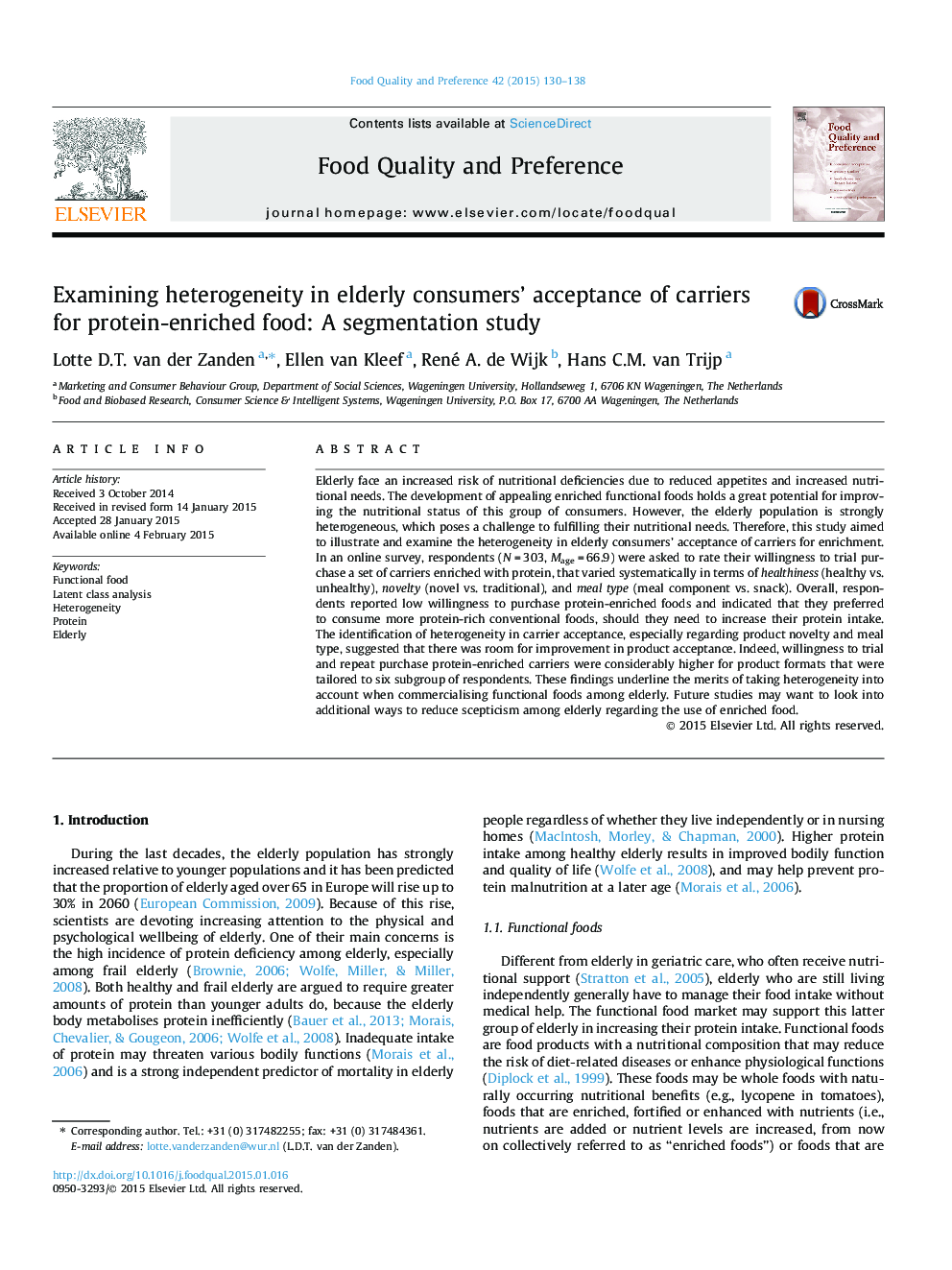| Article ID | Journal | Published Year | Pages | File Type |
|---|---|---|---|---|
| 4316996 | Food Quality and Preference | 2015 | 9 Pages |
•In an online survey 341 consumers aged 56–87 evaluated 16 protein-carriers.•The set of carriers varied systematically in their healthiness, novelty and meal type.•Substantial heterogeneity in carrier acceptance was found among 6 consumer segments.•Overall, consumers reported low willingness to purchase protein-enriched carriers.•Willingness may be increased by tailoring carriers to specific segments of elderly.
Elderly face an increased risk of nutritional deficiencies due to reduced appetites and increased nutritional needs. The development of appealing enriched functional foods holds a great potential for improving the nutritional status of this group of consumers. However, the elderly population is strongly heterogeneous, which poses a challenge to fulfilling their nutritional needs. Therefore, this study aimed to illustrate and examine the heterogeneity in elderly consumers’ acceptance of carriers for enrichment. In an online survey, respondents (N = 303, Mage = 66.9) were asked to rate their willingness to trial purchase a set of carriers enriched with protein, that varied systematically in terms of healthiness (healthy vs. unhealthy), novelty (novel vs. traditional), and meal type (meal component vs. snack). Overall, respondents reported low willingness to purchase protein-enriched foods and indicated that they preferred to consume more protein-rich conventional foods, should they need to increase their protein intake. The identification of heterogeneity in carrier acceptance, especially regarding product novelty and meal type, suggested that there was room for improvement in product acceptance. Indeed, willingness to trial and repeat purchase protein-enriched carriers were considerably higher for product formats that were tailored to six subgroup of respondents. These findings underline the merits of taking heterogeneity into account when commercialising functional foods among elderly. Future studies may want to look into additional ways to reduce scepticism among elderly regarding the use of enriched food.
